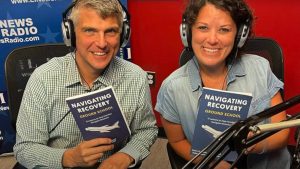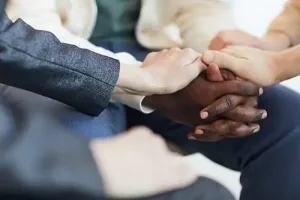
Don’t make excuses to avoid treatment. There is nothing more important than getting treatment for addiction. When I present someone new with options for recovery, I often hear two common objections. They are “I’m a private person” or “I have to do it my way.” Both of these justifications keep the person from actively beginning their path to recovery.
The myth of being a “private person”
This is a common rebuttal to the idea of attending 12-step meetings or going to rehab. The person of concern offers that they’re a private person. Hence, they don’t want to share their feelings to a group of strangers.
This objection is understandable. Sharing our deep emotions with strangers sounds unappealing to anyone. However, what needs to be understood is that, addiction and isolation go hand in hand. Sometimes, the person using is the last one standing in their life.
The opposite of addiction is connection
Years of long-term use has damaged and frayed their relationships. If the person suffering is not physically isolated from others, they are emotionally isolated. The the lies told to loved ones emotionally segregates them. Therefore, the opposite of addiction is connection. Consequently, to recover from a drug or alcohol problem, it is necessary to lean on others for support.
Solace should be taken in the fact that it is indeed a group of strangers. In order to recover, we must get honest with even strangers. So, Secrets need to be shared for it to work.
You’re only as sick as your secrets
Consequently, the people that will help in treatment centers and recovery meetings are aware that they should remain anonymous. Also, in recovery communities, we only use our first names and anonymity is the most important tenet of any group.
In sharing with strangers who’ve been through their own battle with addiction, we discover that they truly understand us. Nothing we’ve done surprises anyone in recovery. The strangers we share our secrets with have thought the same thoughts and done the same things. They’ve done worse even. Hence, I assure new people that their story will be met with understanding and compassion.
No one is judging you or what you share
I have sat through thousands of 12-step meetings. I’ve noticed how newcomers are worried about what other people will think of them. Being in a new environment is nerve wracking. Talking about the darkest corners of your life worsens it.
Trust when I tell you, the people in 12 step meetings won’t judge your story. You can say anything. It’s not that people in recovery are callous or don’t care, we do. We all go to a lot of meetings and over time, we hear it all. No story is shocking.
No singular share is all that memorable. Truth be told, we care about a stranger’s well-being much more than any bar-room friend does. We want to really get to know you. We skip over the pleasantries and get straight to the real issues.
The fact that our stories don’t surprise each other is the power of mutual-aid meetings. We’re surrounded by a group of people who understand us and help us, no matter what. In a 12-step meeting, everyone is equal and we’ve all been down the same road.
By connecting with strangers, newcomers start to build new friendships. You’ll create a sober posse of support. People that lean on strangers for help recover faster and build a stronger long-term recovery than those who don’t.
“I have to do it my way.”
It is common for someone new in recovery to want to create his or her own path through recovery. The fact is, there are already established ways to recover that have proven to be successful. I will admit that I’ve seen people recover in all kinds of ways. There’s no one-size-fits-all approach. Everyone in recovery has created a program in an a la carte fashion in some sense. They take something from here and take something from there along the way. There are many paths.
However, there are traditional approaches to recovery that have proven to be the most successful. Most people who sustain long-term recovery work with a variation of a traditional program. They order off the menu of recovery, they don’t try to build a whole new restaurant.
People entering recovery have to acknowledge that they got themselves to the point of needing treatment for their addiction. Their best thinking got them to this point. Therefore, to recover, they need to be open to help from professionals and fellows in recovery.
Traditional recovery programs include inpatient or outpatient treatment, therapy, psychiatry, and mutual aid meetings. This is the stuff that works. Creating an integrative, personal program from these options is the best chance someone has at long-term recovery.
The Danger of an Inflated Ego
I wonder when someone says, “I have to do it my way,” Is that an inflated ego saying their intelligence will get them sober? I’m curious to know what they think will work. Someone new to recovery certainly doesn’t know anything about how to recover. If they did, they’d have done it already.
How can they create a program for themselves while not knowing anything about what it takes to recover? The most successful people I see know that they don’t know everything and ask to be taught. When someone insists they have to do it their way, it often comes from a place of inexperience.
The other thing this response indicates is that the person is looking for an easier way. They want to do a half-baked program of recovery. Everyone wants the easy way to recover. It’s a problem that we would like to solve with one doctor visit or one 12-step meeting. Recovery takes time, dedication, and work.
My recovery is the hardest thing I’ve accomplished in my life
My recovery is the hardest thing I’ve accomplished in my life. For years I looked, but there was no easier path. I tried an occasional meeting, I saw a psychiatrist and was medicated for “anxiety.” I tried moderation programs, limiting my use, and changing my drugs.
For years I sought the easier way. Only when I decided to work hard, became willing to change everything in my life, and followed a program did I recover. My way was flawed. It didn’t work. Until I started listening to others, I didn’t have the tools I needed to recover.
About Adam Banks
Adam Banks is a certified interventionist and the owner of Adam Banks Recovery. After receiving an MBA from the University of Chicago, Adam built a company acquired by United Health Care. His discipline and attention to detail comes from his former career as an airline pilot, holding an ATP, the FAA’s highest license.
Today, Adam is dedicated to helping others achieve long-term sobriety. His work has guided executives, pilots, and physicians on paths to recovery. Adam brings families together through a loving and inclusive approach.
Adam has authored four books on addiction. His recent work, Navigating Recovery Ground School: 12 Lessons to Help Families Navigate Recovery, educates families on the entire intervention process. He also offers a free video course for families considering an intervention for a loved one.
Adam is available for alcohol and drug intervention services in New York, Long Island, the Hamptons as well as nationally and internationally.




